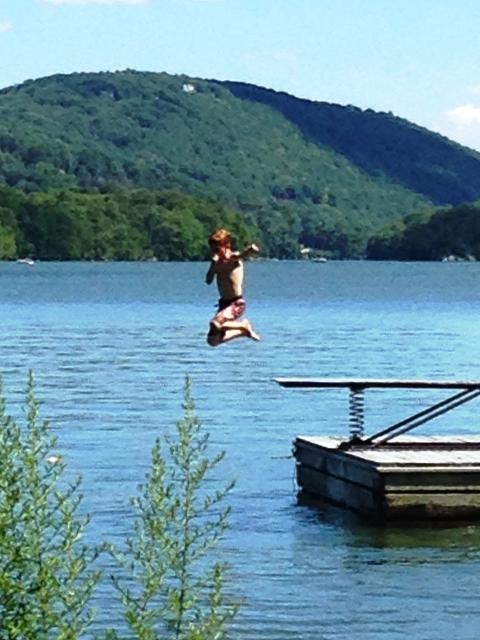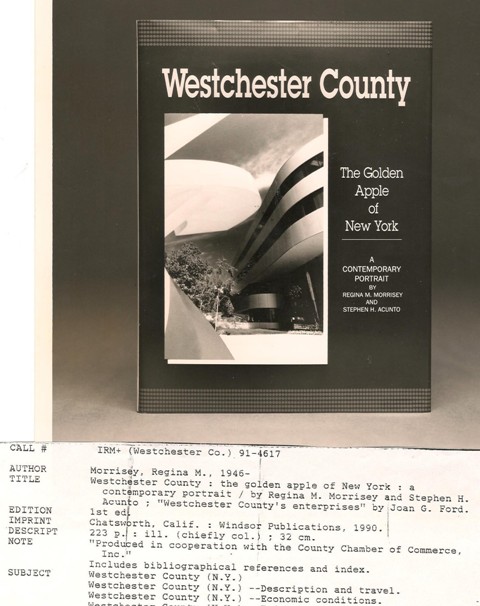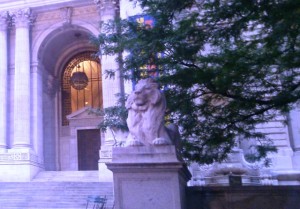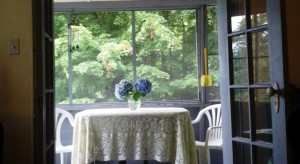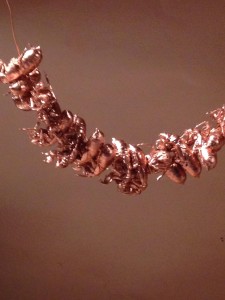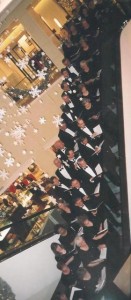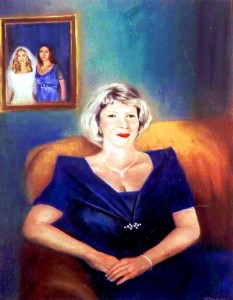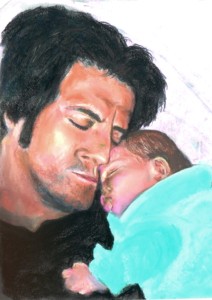As one of the constants that went entirely right in my life, music accounts for so much joy, intellectual enrichment and spiritual nourishment as to be essential to my being - a gift I wish for every man, woman and child on the planet.
Worth a Twirl around the Living Room
First performed in 1924, "Rhapsody in Blue," the jazz-era masterpiece for piano and symphony orchestra, is deemed a landmark in 20th Century American music. Hearing it as a child was enough to make me twirl ecstatically around the living room. With its sweeping 1920s cityscape and orchestral sections, I tear up now when I hear it because, "It is so beautiful!"
Still Emotional
Emotion plays in me with most music; from my mother's sweet, lyric-soprano lullabies to the mash up of British alternative rock band Radiohead and "Brahms Symphony #1" performed in 2015 by composer/conductor Steve Hackman, The Florida Orchestra and vocalists at St. Petersburg's Mahaffey Theater.
"Buoyant" was the word at Tampa's Straz Center when, on a 2015 world tour, Steven Sharp Nelson of The Piano Guys, performed J.S. Bach's "Unaccompanied Cello Suite No. 1" backed by a video of renditions on eight cellos. (The so-called "Cello Song" collected 19,173,315 You Tube hits as of 7:45 p.m. Eastern time on June 18, 2015; though 1,864 of them added a thumbs down. I side with the 161,933 majority.)
Unforgettable and Divine
As to memorable night music: Nothing surpasses picnicking at a New York City park concert with a million people as the New York Philharmonic performs Pyotr Ilyich Tchaikovsky's "1812 Overture," complete with fireworks. And, minus fireworks, I can picture the silken-voiced Rosemary Clooney standing alone on the stage of the packed Hollywood Bowl on a magic night, wrapping the audience around her finger.
For cathedral music experiences: Attending evensong at St. Paul's in London and at York's cathedral as choirs sang baroque music stand out as enchanting trip highlights. The profound 2011 memorial for 9/11 victims held in Notre Dame, Paris, opened with thunderous organ music improvised by the cathedral's master Olivier Latry that rivaled the emotional turmoil of the event. And, saxophonist Paul Winter's annual Solstice, held since 1980 at Manhattan's Cathedral of St. John the Divine, is a yearly uplifting extravaganza of world music.
Joyful Noise
I was thrilled to be among 5,000 people crowded into Riverside Church in Manhattan one Christmas season to perform Handel's "Messiah" with soloists from the Metropolitan Opera.
Singing in a choir each Sunday in another historic church next to the pipes of an organ played by a Juilliard-trained organist was a moving experience.
Sharing a Connecticut choir loft with superbly disciplined West Point choristers resonated to the core - that so many years after joining my first squirming childhood choir.
In a choral outreach at the Danbury Federal Correctional Facilities, I watched with delight as women inmates formed Gospel, Spanish and Caribbean choruses and gained fresh appreciation for the great escape of music.
Attending years of school concerts for my children held a certain charm, especially as one daughter stood poised with a violin and the other earned a seat in the flute section. Hearing my daughter sing Franz Schubert's "Ave Maria" in a New York State high school solo competition filled me with gratitude for the legacy my mother left us.
Thanks to my singing family and esteemed choral maestros and maestras, music from the 12th Century onward is a lifelong passion. So touched was I by the experience of performing in Morten Lauridsen's "Lux Aeterna" with the Tampa Oratorio Singers and orchestra (and my husband) in 2003 and 2013, I had to email the California composer to express my thanks. He let me know of a haunting 2013 documentary "Shining Night: A Portrait of Composer Morten Lauridsen" that shows Lauridsen with choirs around the world and explores his craft, as he practiced it on a secluded island in Washington's Puget Sound.
The Music Police Has My Number But ...
Pandora Radio, the online streaming service, informed me that I had listened to 1,304 songs in a month in 2015. As music-police records show, that didn't include one note of the soundtrack from the beloved "King & I" or "Sound of Music" or "South Pacific" or "Gypsy" or "Auntie Mame" or "West Side Story" or "Man of La Mancha" or "Les Miserables" or "Fiddler on the Roof" or "Jesus Christ Superstar" or "Tommie, the Rock Opera" or "Hair" or "The Lion King" or the Beatles-inspired "Across the Universe." It didn't list opera favorites: "Tannhäuser" or "Don Giovanni" or "Marriage of Figaro" or "Aida" or "La Boheme," or "Madame Butterfly" or "La Traviata" or "Carmen."
New to Me
My Pandora stations list is light on most doo-wop, classic rock, ambient and classical music I have in my library. Instead, the list is long on the works of new (to me) artists featured on St. Vincent, Neutral Milk Hotel, Mumford & Sons, Alternate Indie Love Songs and Adele.
How else would I get introduced properly to the talent of Regina Spektor, Christina Perri, Sara Bareilles, The Killers, Iron & Wine, The Shins, Band of Horses, Passenger, Bon Iver, Philip Philips, Balmorhea, Modest Mouse, Paul Cardall, Of Monsters & Men, Boiled in Lead, The Vitamin String Quartet, Dallas String Quartet and The Piano Guys? Or, reintroduced to Billy Holiday, Etta James, Glenn Miller Band, Frank Sinatra, Tony Bennett, Nat King Cole, Edith Piaf and other perennial greats?
A Whole World
I wish all such music for everyone. Yet, World Food Program reports, "Some 805 million people ... do not have enough food ..." Still, investment in music cannot come soon enough as news reports tell of extreme cultural impoverishment: The late Bob Simon of CBS 60 Minutes showed musical instruments being fashioned from garbage recycled in a landfill in Paraguay and distributed to poor children in surrounding ghettos with heartening results.
Simon also filmed the introduction of classical orchestral music to the Congo where eager recipients of donated instruments walked miles each day to practice and then perform Beethoven's "Ode to Joy." As with indigenous music, people responded enthusiastically to centuries-old European masterpieces.
We sentient beings appear ready at all times to be moved by music. With the ripple of the worldwide web, more people are exposed to more music. Consider the rags-to-riches story of Filipino Arnel Pineda, once a street urchin who ascended to be Journey's lead singer. The American rock group discovered him in a worldwide search in 2007, made possible because of the video files of Pineda's music that his friend uploaded, revealing a talent that rivaled the original lead Steve Perry.
Smarts
On an historic note: I am in good company in musical ardor. In the Internet article "Music and the Brain," Scottish musicist Laurence O'Donnell maintains, "Music helped Thomas Jefferson write the Declaration of Independence," citing he played his violin to "get the words from his brain onto the paper." O'Donnell says Albert Einstein, passionate about Mozart and Bach, figured the "reason he was so smart is because he played the violin." If it was good enough for Jefferson and Einstein ...
For All Ages
In a 2011 National Public Radio interview with Elena Mannes, author of "The Power Of Music," she said "... scientists have found that music stimulates more parts of the brain than any other human function."
Mannes also refers to Sheila Woodward, who researched musical sound in the womb. A miniature microphone placed in the uterus of a mother in early labor recorded Woodward playing music and the mother singing. The team detected strains of a Bach "Brandenburg Concerto" and the melody being sung. From womb to tomb, music expands life's possibilities. In the world of the hearing, each of us can decide - score by score - how far and wide we roam. We all have time for more joy.
So, to sign off making mischief with a song from my childhood, "The Happy Wanderer" (which you can find on YouTube), I hereby exit stage left with my swan song, "... Rhapsody, Rhapsoda, my knapsack on my back."

